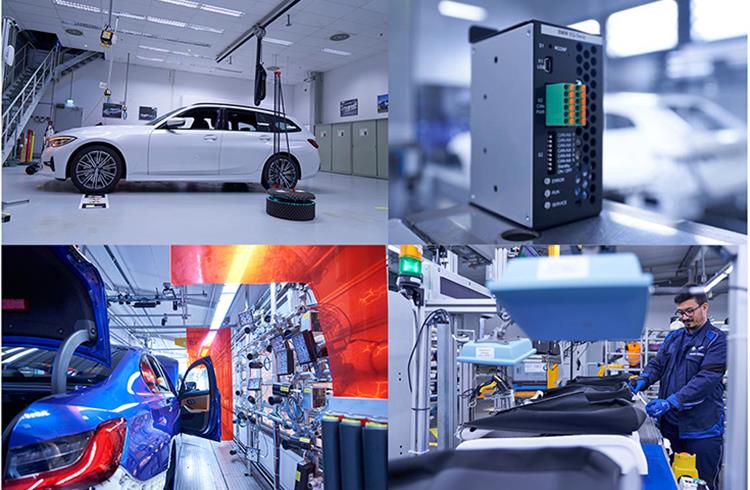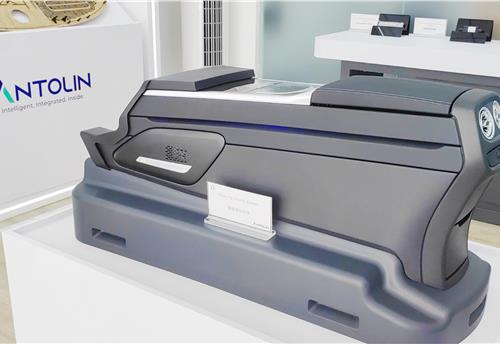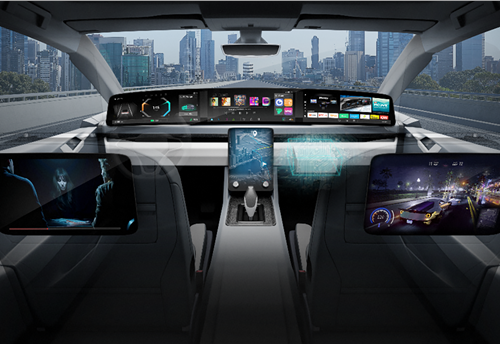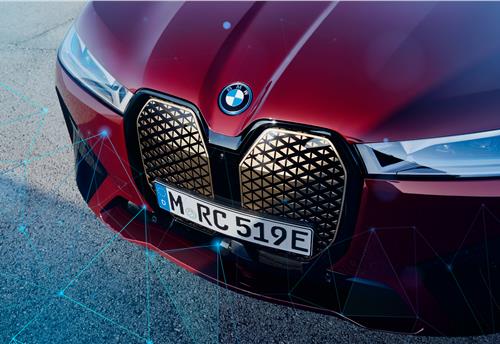BMW’s Munich plant increasing AI use to enhance efficiency
Artificial intelligence also offers potential to identify recurring patterns in a process, based on the data collected, to support continuous optimization as well as improve efficiency.
BMW Group’s home plant in Munich is increasing use of applications with artificial intelligence to integrate into the various production processes coupled with smart data analytics for enhanced efficiency in vehicle production.
The options for using AI and smart data analytics are currently being tested in various areas of BMW Group Plant Munich. In some areas, the technologies are already in use in series production, such as the press shop and function validation.
Robert Engelhorn, Director of BMW Group plant Munich, is working to advance the application of these technologies: “With the help of artificial intelligence and smart data analytics, we can use this data to manage and analyse our production intelligently. AI is helping us to streamline our manufacturing even further and ensure premium quality for every customer. It also saves our employees from having to do monotonous, repetitive tasks.”
As with any innovation, Engelhorn added the key factor is effectiveness: “Our team in production are highly experienced specialists, so they are the best judges of whether an AI application can boost quality and efficiency at any given stage of production.”
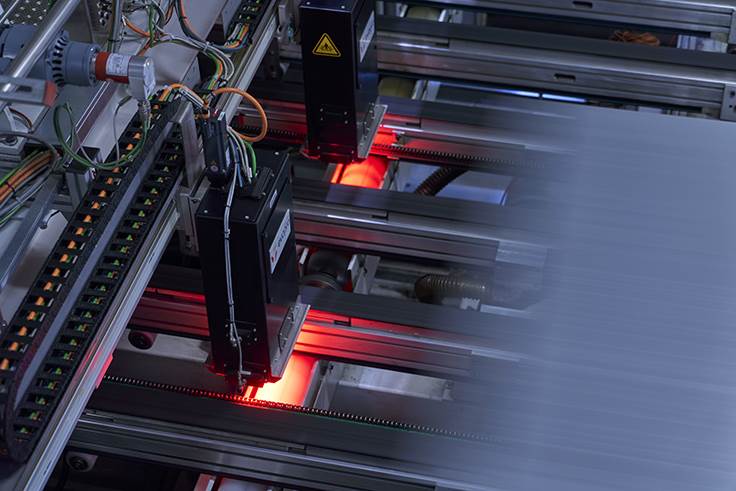
Smart Data and AI in the press shop
The press shop at the BMW Group’s home plant in Munich turns more than 30,000 blanks a day into vehicle body parts. Since 2019 each blank has been given a laser code at the start of production so the body part can be clearly identified throughout. This code is picked up by the iQ Press system, which records material and process parameters. Uploaded to the cloud in real time, the data is immediately available in its entirety for the production team to gain a clearer picture of the manufacturing process.
Artificial intelligence also offers potential to identify recurring patterns in a process, based on the data collected, to support continuous optimisation. So, as well as improving the efficiency of production systems, iQ Press helps to further increase hourly output from the press shop.
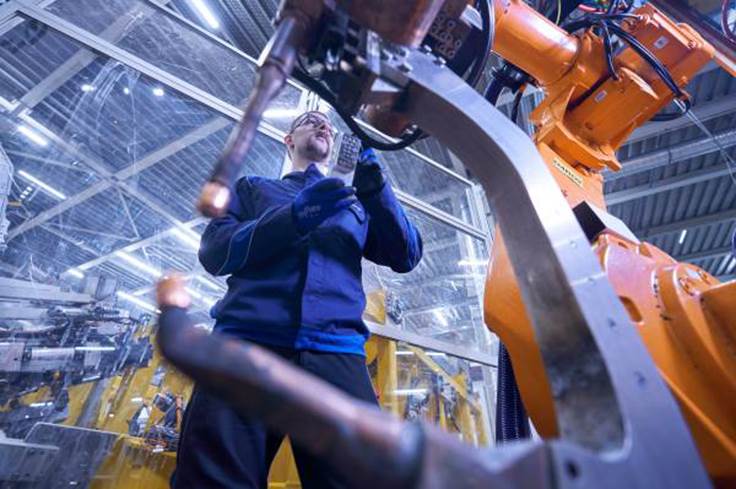
Predictive maintenance
Body shop robots are fitted with a combined total of over 600 welding tongs. If the tongs ever need replacing unexpectedly, it costs significant time and money. Moreover, many of the robots are difficult to access. Until now, the condition of tongs were monitored by eye but in recent months, the maintenance specialists have been fitting sensors to all the tongs to measure friction levels three times per shift and report any abnormalities. Martin Hilt, innovation and digitalisation officer at Plant Munich, explains: “Because we have the sensors and collect their data in a cloud, we can now monitor round-the-clock whether any maintenance work is needed. So, we can plan any replacements better and potentially schedule them for a production break.”
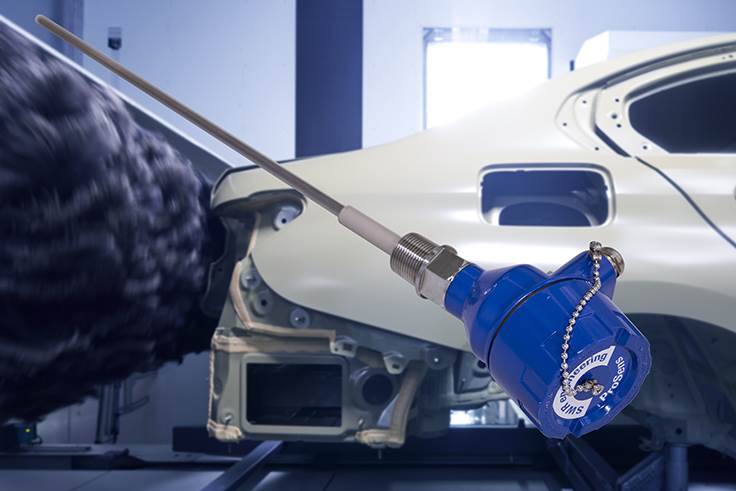
Dust particle analysis in paint shop
Despite comprehensive cleansing systems, vehicle bodies can pick up dust particles as they make their way to the paint line. Though invisible to the human eye, the particles can affect the quality of the finish. Until now, potential defects have gone undiscovered after the painting process, revealed only by the automatic surface inspection. Now, however, every paint shop system incorporates sensors that measure dust levels and allow the quality of paintwork to be predicted.
Over the last few months, a further special sensor developed by Plant Munich has been measuring dust levels on body parts at the beginning of the painting process, before and after the emu feather rollers. In the future, when dust levels are too high, car bodies will pass through the paint shop untreated and be sent for further cleansing.
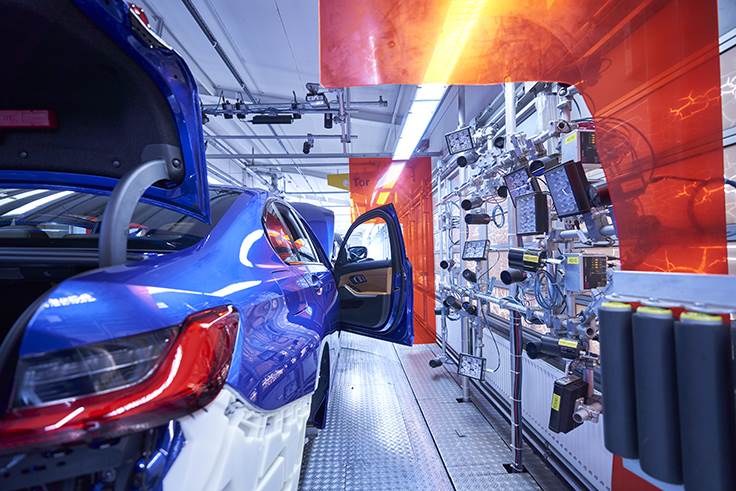
AI-based image recognition in assembly
AI projects in assembly mainly focus on automated image recognition. At Plant Munich, automated image recognition allows the production team to identify whether the hazard warning triangle, wiper caps and door sills have all been correctly fitted to each car. Previously, small bubbles in the foil cover of a door sill were often enough to prevent the conventional camera gates from seeing if the logo on the door sill was correct. But now an associate photographs each part concerned in turn and can even use the mobile equipment to check parts that are more difficult to access. Distance, angle and light hardly have any effect on AI evaluations, which reveal within fractions of a second whether everything is in place or not.
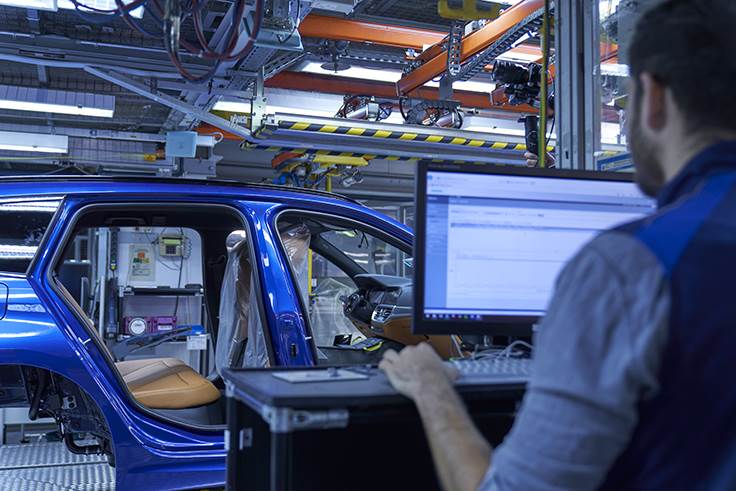
RFID identifies components in the vehicle
Radio Frequency Identification (RFID) allows components to be identified automatically throughout the value chain. Hilt points out, “Our goal is to save production workers from having to scan components manually, and simultaneously to streamline manufacturing even further by ensuring the right components are fitted to the right vehicles.” says Martin Hilt. RFID is currently being used in seat production at Plant Munich but will soon be used throughout the vehicle assembly as well. They remain in place throughout production, allowing line-side antennae to pick up every labelled component within each car as it passes.
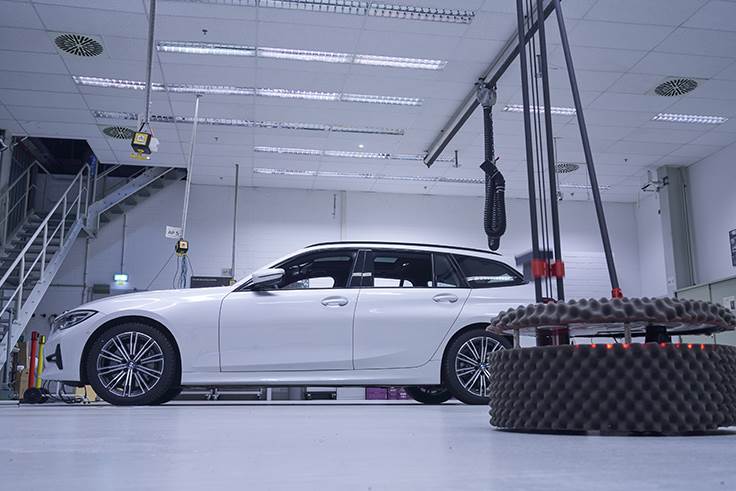
Comfort Access robot
Comfort Access was first introduced in the current BMW 3 Series. A small team from electrics/electronics validation in Munich has now developed a special robot to validate its integration.
The BMW Group and the University of Applied Sciences (HTW) in Dresden have developed a measurement robot that autonomously circles the vehicle several times in a pre-defined pattern to determine the strength of the magnetic field at various required points. As soon as the robot detects the vehicle electronics locking or unlocking the doors, its inbuilt Lidar scanner measures the distance between the key and the vehicle, and surveys the vehicle’s surroundings. The data that is generates goes straight to a central computer, where it is portrayed as a graphic.
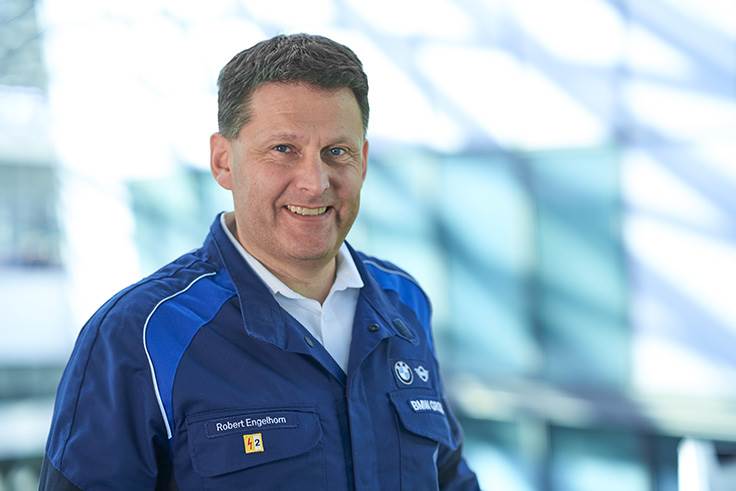
Martin Hilt explained that the advantages of the system are obvious: “This robot is not only much faster, it’s also more precise. The results we obtain are highly detailed and, most importantly, objective. So we can even start validating the function before the car has its first test-drive.”.
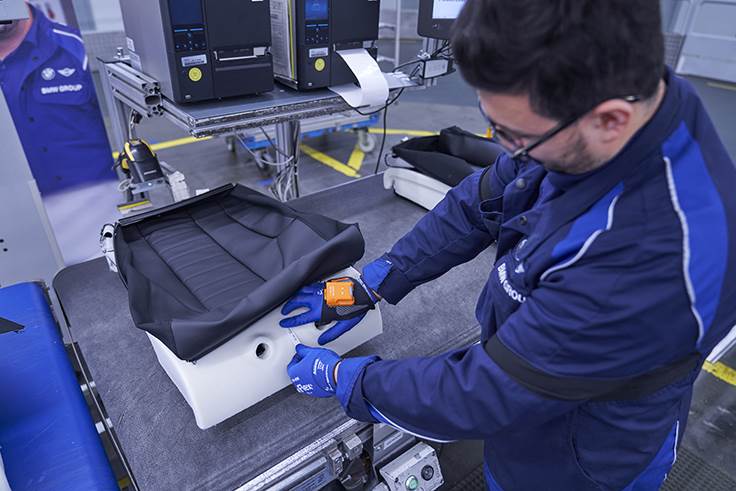
The new app not only replaces the manual process but also improves validation. It is expected to be used for series vehicles in future.
READ MORE
BMW Group makes AI algorithms for smart production public
AbInBev, BMW, Bosch, Microsoft and ZF join forces to accelerate manufacturing innovation
ZF joins BMW Group and Microsoft in Open Manufacturing Platform
Daimler and BMW join forces to develop SAE Level 4 automated driving vehicles
BMW India enables customers to give real-time video approval for vehicle servicing
RELATED ARTICLES
Antolin unveils sustainable tech solutions at Beijing Motor Show
In line with its China market roadmap, Antolin is showcasing its latest advances in lighting, HMI, electronics, and sust...
Visteon wins $1.4 billion in new business in Q1 2024, launches 26 new products
Digitisation of vehicle cockpit megatrend is a key growth driver for Visteon with over $400 million of displays wins; Vi...
BMW uses Catena-X ecosystem using real-world CO2 data to enhance quality
Working together with partners and suppliers, the company has modelled a complete data chain for the first time using re...





 By Autocar Pro News Desk
By Autocar Pro News Desk
 28 Feb 2020
28 Feb 2020
 8193 Views
8193 Views



